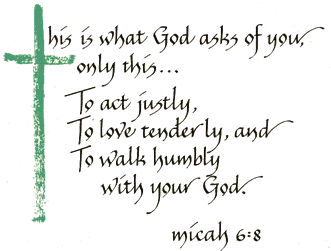catholicPittsburgh.org is the place for information, news, commentary, reflections and community building among the people of God who are renewing the Catholic Church in Western Pennsylvania.
More about us
Welcome ...
Partnering Groups
The following organizations are partners with catholicPittsburgh.org:
Discussing what we have heard
Reflection on the Seventeenth Sunday in Ordinary Times
By Greg Swiderski
The readings for this Sunday:
Several years ago John Shea led a workshop and invited us to discuss some questions with three other people near us. I realized that no matter how insightful, reflective, or engaging any homily might be, the possibility for grace to be active, effective would take place when people discussed what they heard. Imagine our ancestors gathered around a fire and talking about the message which they heard from the oral tradition which we call Gospel.
I present some questions based upon each reading and invite you to discuss them. Then you may add your comments to this reflection below.
The first reading takes place within a dream. What feelings surface when you recall your dreams? What questions arise? Every "player" in the dream may be some part of the dreamer. Use free association for each actor in your dream and see if these "characters" connect and give you some insight. This may especially seem valuable if a dream repeats or if a dream of long ago still speaks.
Recently scientists blew up a piece of a comet. They say that they will learn much from probing the resulting cosmic dust; they are probing into our ancient history. In Paul's letter he reminds us about our common spiritual past. There seems a purpose, a foreknowing, a predestination, a divine and sacred plan. Recently Cardinal Christoph Schonborn, Archbishop of Vienna wrote an op ed piece in the New York Times. In part he wrote: “Evolution in the sense of common ancestry might be true, but evolution in the neo-Darwinian sense -- an unguided, unplanned process of random variation and natural selection -- is not." How do you understand this divine and sacred presence writ through our common and cosmic history?
Matthew weaves some sense of judgment within his good news: last week weeds and wheat were eventually separated; this week there is the fish; later, the sheep and goats; the guest without the wedding garment. Thomas Cahill in his book: Sailing the Wine Dark Sea: Why the Greeks Matter writes: "Once a year, the citizens voted on whether or not they should hold an ostracism. If the majority voted yes, each member of the Assembly (Ekklesia) then wrote on an ostrakon the name of the person he felt the city could best do without. Whoever turned up on the most ostraka was banished for ten years, after which time he could return, his property in tact." We proclaim that our ecclesia is based upon love. What place, then, do such judgments have? How do you distinguish good and evil or are these terms a convenient fiction to help us make sense of that which seems beyond explanation? There are spiritual traditions which approach these questions without such distinctions.
- By JoeMertz at Jul 23 2005 - 10:01am
- Reflections
Micah 6:8

©1996 Cards by Anne
Used with permission